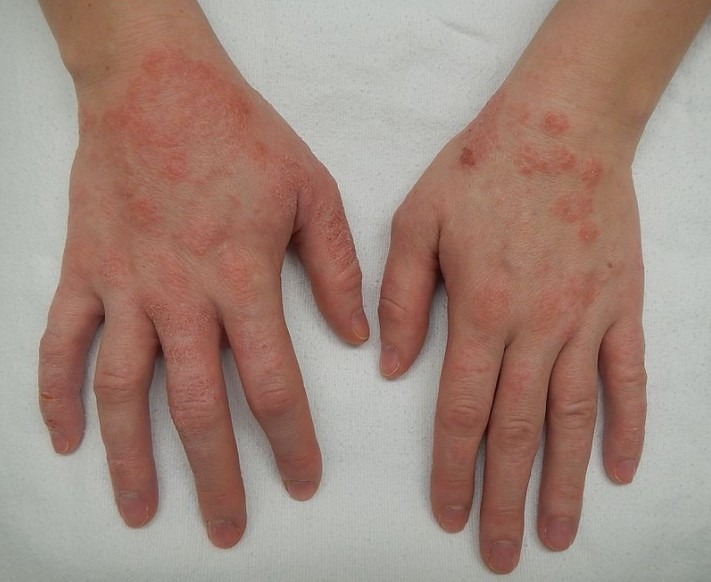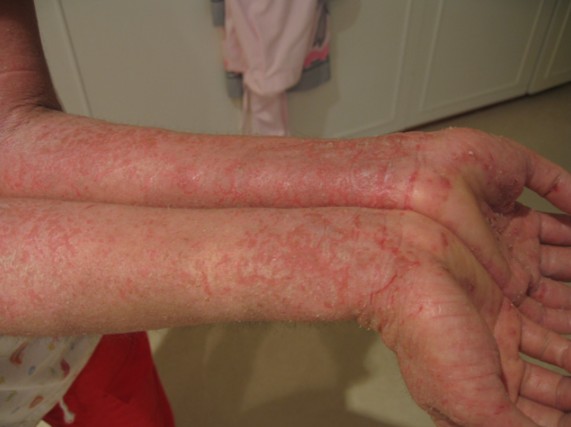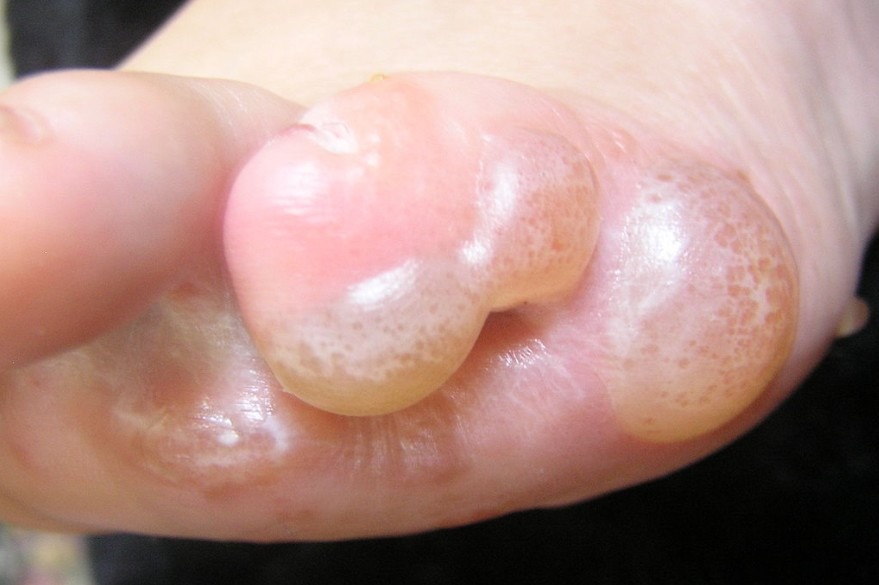Eczema is a common and possibly dangerous condition. The most common type of eczema is atopic dermatitis, which is characterized by dry, itchy skin. Most individuals can control their disease with simple treatments such as moisturizing, but more severe cases necessitate a mix of medication and lifestyle changes.
When you experience a flare-up of itchy, irritated skin caused by eczema, you feel like you’d do everything to relieve or prevent the rashes. Fortunately, there are numerous strategies to keep your eczema under control these days.
Eczema Flare-Up Treatment
Consult your doctor to determine the best therapies for you. Your symptoms, family history, age, lifestyle, and other health issues all assist you in identifying effective treatments. Most eczema remedies provide only temporary relief.
Your dermatologist or doctor may prescribe a steroid cream to relieve the itch and clear the rash or calcineurin inhibitor topical creams such as pimecrolimus (Elidel) or tacrolimus (Protopic) to protect your skin and prevent eczema flare-ups. Over-the-counter (OTC) hydrocortisone cream relieves mild itching. Eucrisa ointment is a topical nonsteroidal anti-inflammatory medication that may help reduce redness and irritation in people with mild to moderate atopic dermatitis.
Apply steroid cream to a severe eruption, and then wrap a wet bandage around the region to keep it moist. A UV ray equipment at your doctor’s office or light therapy from the sun may also help to reduce outbreaks.
Oral antihistamines can help with severe eczema itching that keeps you awake at night. Diphenhydramine can relieve itching and aid in sleep. Fexofenadine, cetirizine and other antihistamines help alleviate flare-ups and itching without causing drowsiness. They are all available for purchase over the counter.
For severe eczema flares, your doctor may also prescribe oral corticosteroids or administer a steroid shot. If you scratch the itchy rash and break your skin, you may require antibiotics to avoid infection.
Dupilumab (Dupixent) may be recommended for moderate to severe eczema that isn’t managed by topical treatments or when topical drugs cannot be administered. This medication is administered as an injection under the skin every two weeks.
Treat your eczema in coordination with your doctor. Some eczema medications or treatments, such as steroids, might cause adverse effects if used for an extended period or regularly.
In addition to pharmaceuticals, there are other home remedies you can attempt to alleviate your symptoms. These natural treatments may aid in replenishing moisture and protecting your skin’s natural barrier, including these best lotions for eczema.
If you are on prescription treatments for your eczema, you should see your doctor before attempting new home remedies.
Acupressure and Acupuncture
Acupuncture is a technique that involves inserting tiny needles into particular points of the body to modify the flow of qi. Even though additional research is needed, some data suggest that acupuncture may provide itch relief.
Acupressure is similar to acupuncture, but instead of needles, it employs the fingers and palms to apply pressure. Preliminary investigation has shown acupressure may help reduce itchy skin caused by eczema.
Calendula Cream
Calendula cream is a natural treatment, which has been used as a folk remedy for ages to treat burns, skin inflammation, and cuts.
It’s supposed to moisturize skin, enhance blood flow to regions of injury or inflammation, and aid in combating infection.
There hasn’t been much study conducted on the effectiveness of calendula for eczema. However, some argue that it is beneficial. Calendula cream is available without a prescription.
Coconut Oil
Coconut oil, made from the meat of a coconut, can be utilized as a natural skin moisturizer.
As stipulated by the National Eczema Association, the oil’s antibacterial properties can help eliminate staph bacteria on the skin, preventing infection. This is critical for those who have eczema because inflamed skin areas can crack and bleed, enabling bacteria to enter.
Pick cold-pressed or virgin coconut oil that hasn’t been chemically treated before applying it to your skin.
Colloidal Oatmeal
This type of oatmeal is created from finely ground oats. It soothes and softens irritated skin. This oatmeal is available in powder or cream form.
Evening Primrose Oil
Evening primrose oil is extracted from the evening primrose flower. It’s applied topically to relieve inflamed skin.
It’s used to treat systemic inflammatory diseases such as eczema when taken orally. Evening primrose oil contains gamma-linolenic acid and omega-6 fatty acids, which may help avoid inflammation in the body.
The results of research on evening primrose oil for eczema are varied. Despite this, many people believe it helps them minimize their eczema symptoms without harmful side effects.
Relaxation Techniques
Stress is a common cause of eczema. However, it’s unclear why stress is thought to play a role in the development of inflammation. Learning relaxation techniques to deal with stressful situations may significantly minimize eczema flare-ups.
Relaxation techniques that may be beneficial include:
- biofeedback
- cognitive behavioral therapy
- deep breathing
- hypnosis
- meditation
- music therapy
- tai chi
- visualization
- yoga
Sunflower Oil
Sunflower oil is extracted by pressing sunflower seeds. According to research, it preserves the skin’s outer layer, which helps keep harmful bacteria out and moisture in. Sunflower oil moisturizes the skin and may help with inflammation and itching.
Sunflower oil can be applied directly to the skin, undiluted, preferably after showering while the skin is still damp.
Witch Hazel
Witch hazel is an astringent produced by the witch hazel shrub’s bark and leaves. It has been used as a topical treatment for skin inflammation for ages. However, research on witch hazel for eczema is limited.
Nonetheless, the remedy is frequently used to soothe irritated skin, dry up seeping regions, and ease itching.



